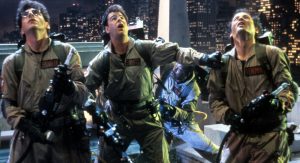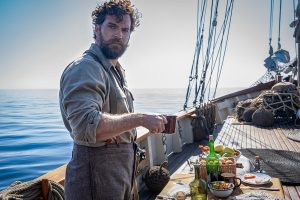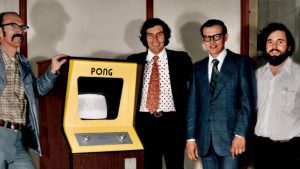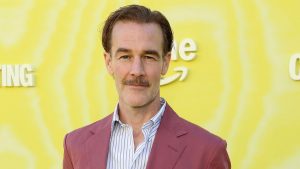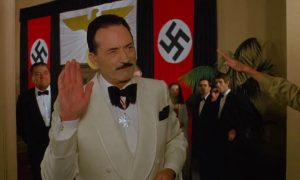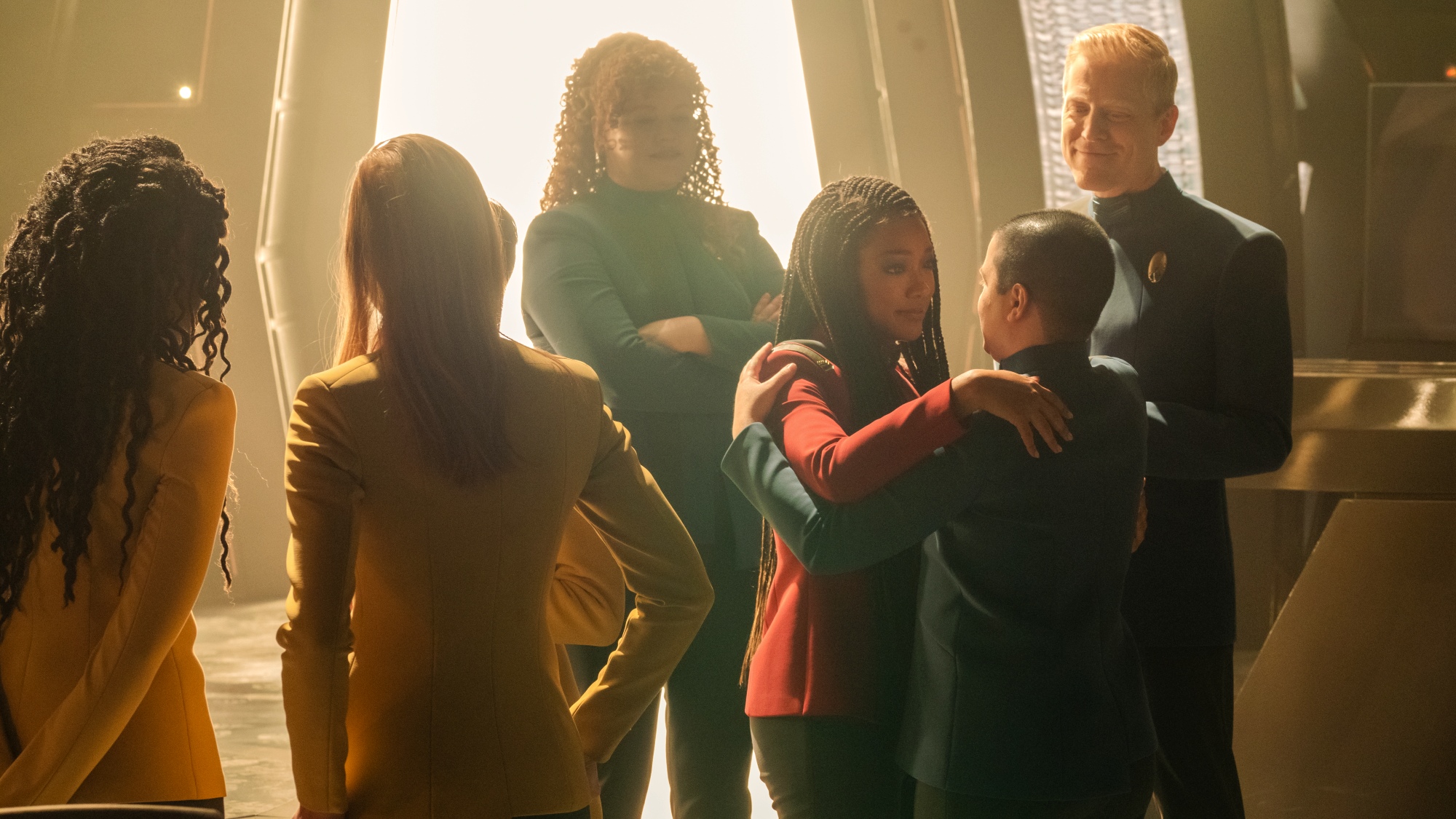
This Star Trek: Discovery article contains spoilers.
After five seasons, Star Trek: Discovery, the series that launched a new era of Star Trek programming on television, has come to an end with the finale “Life, Itself.” Leaning heavily on the science fiction action and prominently connecting with Star Trek elements introduced in the ‘90s, Discovery’s fifth and final season brought the adventures of Starfleet officer Michael Burnham (Sonequa Martin-Green) to a satisfying close. That conclusion includes a coda that was added after the creative team learned Discovery would not be renewed for a sixth season. The additional scenes were filmed to provide the finale with greater closure.
At the helm of the fifth season was Michelle Paradise, who has been an executive producer on the series since the second season and co-showrunner, with series co-creator Alex Kurtzman, since Discovery season 3. Paradise recently sat down with Den of Geek to go in full spoiler-y detail on wrapping Discovery and shares how far development on a potential sixth season had progressed before the team discovered they would not proceed with more episodes.
What Happens in the Star Trek: Discovery Series Finale
Star Trek: Discovery season 5 was largely driven by a scavenger hunt across the cosmos, with Captain Burnham and the USS Discovery following clues to recover technology from the Progenitors, a mysterious ancient race that seeded all known humanoid life in the galaxy eons ago. Unfortunately, the Discovery was not alone in this race, with the wanted criminal Moll and the Breen, a vicious alien race introduced in Star Trek: Deep Space Nine, looking to recover the technology for themselves. Racing toward the finish line in the finale, Burnham and Moll (Eve Harlow) both entered a pocket dimension where Burnham spoke with a holo program of a Progenitor, not only obtaining a data drive from them but learning that the Progenitors created life from ancient technology they discovered from another unknown race.
In the end, Burnham not only convinced Moll to stand down but her new first officer Rayner (Callum Keith Rennie) and the crew outmaneuvered the Breen warship, and though a quick analysis of the data revealed it could change all life in the galaxy, Burnham respected the Progenitors’ wishes by deciding to not share it with the Federation. Burnham’s Starfleet superior, Doctor Kovich (David Cronenberg), was understandably annoyed by this but understood and respected her reasoning. In return, Kovich revealed his real identity as Agent Daniels, a time-traveling Starfleet officer introduced in Star Trek: Enterprise.
Returning home for the coda section of the finale, the crew assembled to celebrate the wedding of Saru (Doug Jones) and Ni’Var President T’Rina (Tara Rosling) where Burnham and her paramour Cleveland “Book” Booker (David Ajala) also rekindled their romance. In an epilogue decades into the future that ties into the beloved Short Trek “Calypso,” an older Admiral Burnham sent off the Discovery and its sentient ship computer Zora (Annabelle Wallis) on an important mission. To commemorate its send-off, Zora was joined by holograms of the Discovery crew in their prime in one emotional final farewell.
Pivoting to a Series Finale After Discovery Was Canceled
Principal photography on Star Trek: Discovery season 5 wrapped in November 2022 with the initial expectation that the series would be renewed for a sixth season. However, Paramount+ and CBS Studios announced the fifth season of Discovery would be its last in March 2023, with additional scenes filmed the following month. For Paradise, this chance to wrap the story in a more satisfying way and tie up loose ends was a unique one that she and the rest of the creative team greatly appreciated.
“It’s a rare opportunity, so we remain so grateful to Paramount+ and CBS Studios for letting us do that, because it almost never happens,” Paradise says. She and Kurtzman were joined by fellow series writer Kyle Jarrow to develop a coda for the entire series, which evolved into the flash-forward of Burnham launching the Discovery for its final voyage. Paradise notes the idea of having the Discovery crew in their prime appear on the bridge for the last goodbye was something Kurtzman had in mind for a while.
“Alex pitched that scene on the bridge,” Paradise confirms. “I don’t know how long he had that in his mind, but it didn’t start this season. He’s had that in his head for I don’t know how long. It’s just so beautiful and so emotional. Getting to see everybody as they are now feels like it gives the audience an opportunity to say goodbye to all of our beloved characters.”
Paradise wanted the coda to be anchored by two characters in particular, Burnham and the Discovery itself, through the personified perspective of Zora. With Burnham as “the heart and soul” of the show, Paradise wanted to provide her with a coda that confirmed and detailed her happy ending. This extended to the closing scene on the bridge conveying to the audience that “Burnham and Book are okay, our crew is okay, and Zora and Discovery are also okay.”
Connecting to Star Trek’s Past: The Breen, the Progenitors, and Agent Daniels
The 32nd century setting of Discovery that began with the show’s third season allowed the creative team to remix familiar elements of the Star Trek mythos. For season 5, the story connected directly and prominently not only with the Breen—we finally learned what they looked like under those creepy helmets—but the Progenitors, a race only seen in a one-off sixth season episode of Star Trek: The Next Generation. Although both the Breen and Progenitors appearing memorably in classic Star Trek series, Paradise felt they were relatively blank canvases to fill out creatively in writing Discovery season 5.
“All we really knew about the Breen is that they were scary bad guys that had these really interesting suits that they wore,” Paradise reflects, noting they were simply known for being visually striking adversaries in DS9. “We didn’t know much about them but, when you invoke the name of the Breen, you shudder a little bit. Getting to bring them into the season, just the name itself tells us that these are going to be formidable bad guys for our heroes, but didn’t want to just make them bad guys. It was also an opportunity to learn more about their culture.”
The Progenitors not only gave Discovery season 5 its MacGuffin but created a greater sense of mystery and tied into the season’s deeper existential themes of belonging and meaning. Paradise explains that the dark matter anomaly crisis in season 4 was analogous with COVID, leaving the crew searching for direction, with the theme highlighted by the Progenitor mission.
“It just felt right that all of our characters would be in that place, going on those journeys in different ways, but all exploring similar things,” Paradise observes. “It felt like having the Progenitors be a piece of that really spoke to the journey that they’re all on.”
The other big connection to past Star Trek series in Discovery season 5 was the unveiling of Kovich’s identity as Agent Daniels, a Temporal agent from the 31st century who encountered Captain Jonathan Archer in the first season of Star Trek: Enterprise. Inspired by David Cronenberg’s performance as Kovich, Paradise felt he added “layers upon layers” to the character and story and wanted to pay that off in a big way with the fifth season, even before learning that Discovery would not be renewed.
“Very early on, we knew we were going to have to answer the backstory of this character and who he is and that it had to be worthy of the character himself and the way David plays him,” Paradise recalls. “A couple of our writers who are very familiar with Star Trek: Enterprise suggested Daniels and the minute they did, all of our heads exploded a little bit because it just felt like that makes sense. We knew, coming into this season, that we wanted to answer that in what, at the time, we thought was the season finale.”
Tying Up Loose Ends, Discovery Season 6, and the “Calypso” Connection
Apart from the reveal of Kovich’s true identity and background, the other major plot thread that Paradise wanted to resolve was the timeline discrepancy created by the Star Trek: Short Treks episode “Calypso.” The short episode, released before the Discovery’s time jump to the 32nd century, revealed that at some point Zora had been without a crew for nearly a millennium when the ship encountered a lost soldier in the vastness of space. Before ending the series, Paradise wanted to tie up this loose end and clearly set up the events of “Calypso.”
“We always knew we were going to have to answer in the series somehow,” Paradise explains. “Finding a way to address that within the coda in a way that would feel satisfying for people who had seen [Star Trek: Short Treks], but not feel distracting or confusing for people who didn’t know it. Finding a way to satisfy both sides of the audience, it felt like our audience, even if they don’t know Short Treks, they’re now familiar with the ‘Red Directive’ term.”
Even though Paradise hadn’t initially planned for Star Trek: Discovery ending with its fifth season, plans for a potential sixth season had not substantially been formed by the time she learned Discovery would not be continuing. For Paradise, the important thing was that the show got the opportunity to resolve its biggest outstanding plot thread in its final scene.
“In terms of a possible season 6 and how we would’ve mixed things up further moving forward, I can’t really answer that because we didn’t really get farther down the road,” Paradise admits. “We were in the very early stages of thinking what a season 6 might be when we found out that season 5 would be our last.”
Even if Discovery season 6 will only ever exist in our imaginations, at least we got a moment to say a proper goodbye to our beloved crew before the end.
Star Trek: Discovery is available to stream on Paramount+.
The post Star Trek Discovery Ending Explained and How the Finale Connects to “Calypso” appeared first on Den of Geek.

